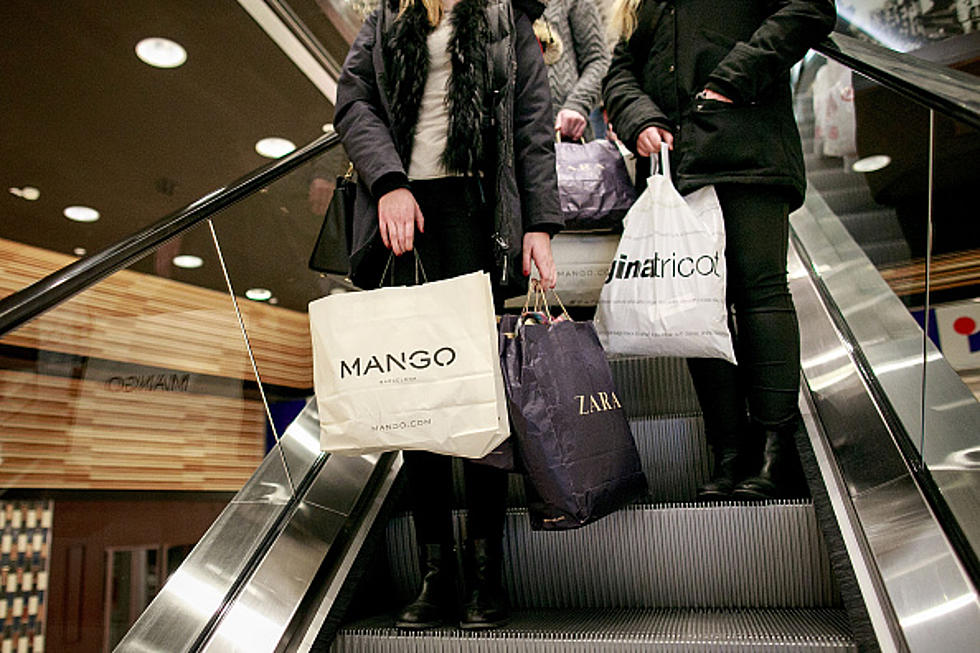
Wish granted: Same day delivery for the holidays
NEW YORK (AP) -- A procrastinator's holiday wish come true: Presents ordered at the last minute can now show up under the Christmas tree that same day.
Amazon, Target and Macy's and other retailers are offering speedier delivery, including overnight and same-day options that will continue even past the holidays.
The focus on faster shipping is one way retailers are catering to shoppers who've become increasingly finicky and impatient. Since the recession, it's not enough to get lower prices; they want the deepest discounts. And when it comes to ordering online, orders need to be shipped fast.
"I'll pay extra to get something right away," says Wendy Connors, a 47-year-old mother of three who lives in Menlo Park, California.
Quick delivery is important for retailers as they head into the winter holiday shopping season, a time when they can make up to 40 percent of their annual sales. U.S. shoppers are expected to spend $61 billion online in November and December, according to research firm comScore.
Retailers can't afford a repeat last year when UPS and FedEx failed to deliver some packages by Christmas due to a combination of poor weather and overloaded systems, causing angry customers. Neither of the top two deliverers said how many packages were delayed, but noted it was a small share of overall holiday shipments.
Forrester Research analyst Sucharita Mulpuru fears that the industry could be ill-prepared for the influx of online ordering again this year. She points out that the growth UPS and FedEx are forecasting this season is below growth estimates for online spending by the retail industry.
UPS forecasts it will deliver 585 million packages in December, an 11 percent increase over 2013, and FedEx expects to deliver 290 million packages, an 8.8 percent increase from last year. But research firm ComScore expects online spending will grow 16 percent to $61 billion.
It's not a direct apples-to-apples comparison, Mulpuru concedes, but the difference in estimated percentage growth could spell trouble for shippers and retailers this holiday.
"I don't know if there's enough bandwith ... to accommodate full demand," she says.
Retailers are hoping that speedier delivery options will help spread out shipments throughout the season so that there's not a big crunch toward the end like there was last year.
Amazon expanded its Sunday delivery service, adding more than 10 distribution centers and 15 smaller sorting centers that sort packages by ZIP code and transport them to U.S. Postal Service offices. It also expanded same-day delivery, available for $5.99 per order to members of its $99 annual Prime loyalty program, to more cities. In August it expanded from 4 to 12 cities on the East and West Coast.
Other online retailers are offering same-day delivery, too. Google relaunched its Google Shopping service, which costs $10 a month for membership or $4.99 per order, offers same-day delivery from Costco, Toys R Us and other retailers in about 6 metro areas. And eBay has retooled its "eBay Now" same-day delivery service, introduced in 2012, from a stand-alone app to a method of payment available on its site within the eBay app and website.
"Shoppers don't shop by saying what do I want now," says eBay's head of local, Tom Allason. "They shop by saying what do I want, and then when and where can I get it."
Tech companies aren't the only ones offering same-day delivery. Macy's, Bloomingdale's and six mall chains partnered with tech company Deliv to offer the service in major markets. Deliv founder and CEO Daphne Carmeli says there's been a boost in holiday demand already, but she declined to give figures.
Same-day delivery is mainly available in big cities, but elsewhere retailers still are working to cut delivery times.
In October, Target rolled out a program to ship items directly from 140 stores in 40 markets, covering most of the country. Shipping directly from a store speeds up delivery because stores are often closer to customer's homes than a warehouse. Target spokesman Eddie Baeb says that cuts shipping in half, from an average of 4 days to 2 days.
Toys R Us, Nordstrom and other retailers also have begun using their stores as mini warehouses to ship items directly to shoppers.
Best Buy, which shipped items from 400 stores last holiday season, said it will ship from all 1,400 stores this time. It also is giving customers precise delivery information: During the checkout process, Best Buy will give precise get-it-by delivery dates on about 60 percent of products, compared with previously when it would just let shoppers know delivery times within five to eight days.
Best Buy CEO Hubert Joly says the shipping process has been an "intense area of focus."
More From New Jersey 101.5 FM









